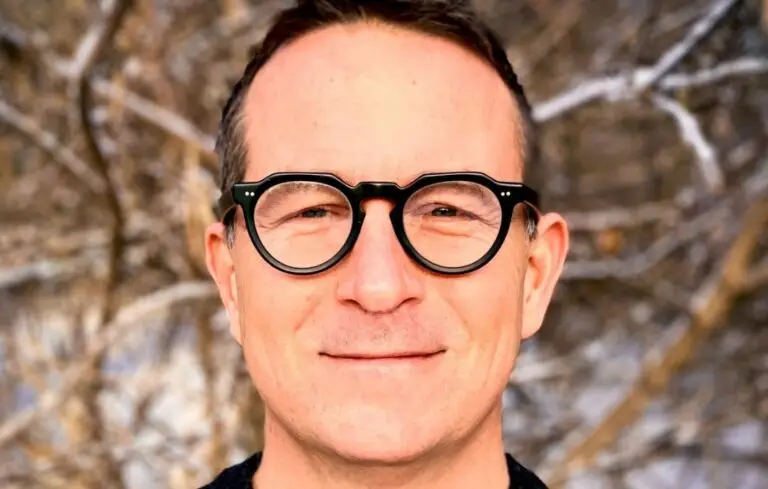In a new book , former Homeland Security Director Michael Chertoff argues that unless our legal structures change, the main casualty of the big-data revolution won’t be our privacy—it could be our autonomy. Here’s an excerpt.
, former Homeland Security Director Michael Chertoff argues that unless our legal structures change, the main casualty of the big-data revolution won’t be our privacy—it could be our autonomy. Here’s an excerpt.
James’s eyes pop open, prying his thoughts from slumber. Once again, he has woken up at 5:43 a.m. James always does. The monitor never lets him linger in bed. He sometimes wonders what the early-21st-century “snooze function” might have been like. He has never experienced such a thing but has seen it in a few old movies. In modern 2084, the ideas of the previous century have not been deemed relevant and most of the media has been destroyed.
James has no such luxury. At the optimal awakening time, the monitor, already aware of his sleep phase, begins playing sounds to generate his awakening. The audible portions are supposed to be relaxing. James has chosen beach waves that remind him of his childhood on Cape Cod. Nearly inaudible portions connect with his subconscious, causing his body to begin waking whether he wants to or not.
Today he gets up quickly. Previously, the monitor’s neural scan of James determined that he had been too slow in pulling out of a deep sleep, so it has increased the amount of subliminal communication. James doesn’t know what it would be like to wake up late; the thought is so foreign to his prescribed daily routine that it occurred to him only after he had seen one of those old movies.
After James showers and makes his way toward the kitchen, the monitor presents him with three healthy breakfast options matching his weight, age, and health history. He is glad that he is still young enough to be allowed bacon, and he chooses a breakfast burrito heavy in kale and infused with egg whites. If he eats more than what is presented, the questioning begins. The same thing happens if James refuses to eat. The last time he attempted to skip breakfast, the monitor had detected his failure to accumulate the necessary caloric intake and, since this information was coupled with the fact that his daily bloodwork showed a rise in his white blood cell count, James was deemed too ill to work and was sent to bed.
Entering his travel pod, he begins his commute to the office.
Upon James’s arrival, he is greeted by the monitors stationed outside the building, “Welcome, James Jones. The morning meeting begins at 9:00 in conference room B. Six out of eight attendees have arrived and are stationed in the room. Marcos is 2 minutes and 46 seconds away from arrival.”
“Chipped” at birth, James is accustomed to having his location known and available to others. Initially developed as an expensive and optional parental security feature to ensure that rescue would be quick in case of kidnapping or accident, the chips were eventually demanded by everyone. Mass production and government help have made them affordable. Because of their usefulness in convicting criminals, society has come to accept them. Therefore, anyone who wants to find James can do so. As a by-product of the chip, his life’s history can be played out as a simple series of circular patterns that rarely shift. It isn’t as if he consciously thinks about it. His behavior morphed because he just doesn’t want to be part of the interrogation that inevitably comes if he happens to be in the wrong place at the wrong time. Life is easier if his transit patterns match what is expected.
Although he already knows everyone in the conference room, as James enters, his “eyeglass” implants identify each participant by name. Although this technology is relatively new, James still finds it odd to view the world in “assisted mode.” As he scans the room, an indicator showing each person’s name is tagged in his vision. If he desires, James could probe for more information—his colleagues’ education and work background, intelligence score, family members, and even medical history—by accessing the visual internet database.
After first receiving his eyeglass, James had regularly gone back to review meetings from his colleague Amy’s perspective, hoping he might catch how often she had glanced his way. At first, she was stealing quick looks. She stopped doing this when the monitor flagged her viewing patterns as being irrelevant and a waste of corporate resources. James thinks Amy might be interested in him, but it is too hard to find a legitimate reason to reach out to her. Eventually, he gives up.
Crime rates have fallen tremendously. It is too hard to do something illegal when the crime is almost always captured by either an eyeglass or one of the scanning monitors installed as part of every streetlight. Homeowners installed their own scanning monitors when criminals began to target homes without such devices. The monitors proliferated, and on a vast scale. It wasn’t mandated; it was as if the network spread on its own.
The dramatic drop in crime rates is due to not only the increased surveillance but also the increased ability of the organization to predict bad thoughts, ideas, and ultimately actions. This started as an improvement to the archaic lie-detector testing. Eye movements were first mapped to speech. This data was then processed with behavior recorded by the myriad sensors and video cameras throughout the city. From this data, predictive analytics are able to identify predisposition to erratic and even dangerous behavior.
Thoughts that cross a high negative threshold are automatically reported to the police.
James shakes himself out of his daydream. He isn’t sure if the authorities can piece together his random thoughts into a coherent stream, but he does not doubt for a second that he is being monitored. Unsure of what thoughts might trigger a report to the police, James finds it simpler to focus only on the task at hand. Friends are a distraction, and he always ends up wondering which one of them is an agent. James wonders about just what is, no longer about what might be.







